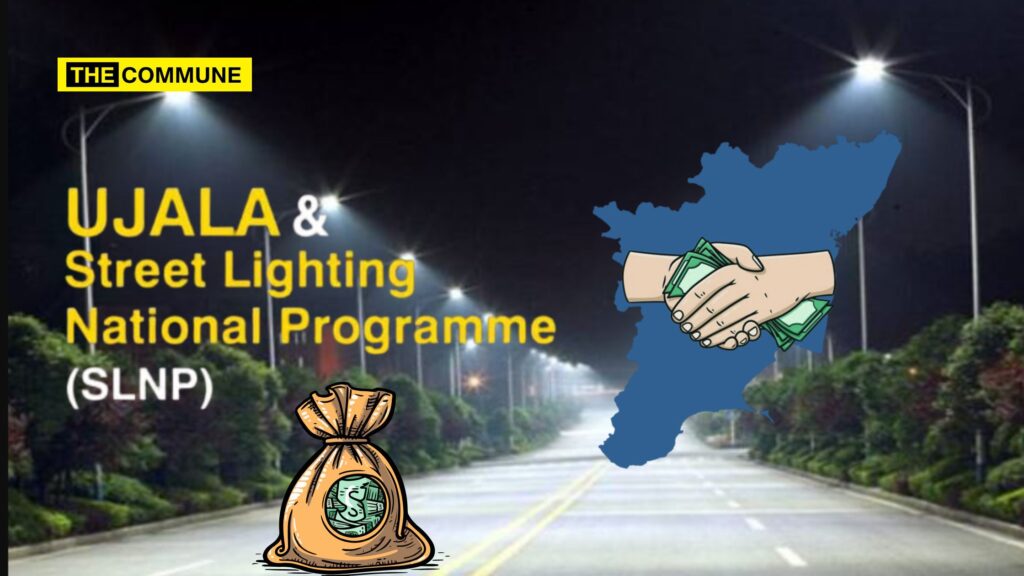In the aftermath of widespread political criticism directed at the central government’s Budget 2025, Dravidian party leaders have once again claimed that the recent budget holds no value for Tamil Nadu with their usual narrative that, once again, the central government has neglected the state in its budgetary allocations. Political commentators have shifted the focus, questioning the Dravidian parties whether, even if adequate funding is provided, Tamil Nadu’s state government has the capacity to utilize these funds effectively, without leaks, embezzlement, and corruption, to benefit the common people.
Critics have raised concerns about both Dravidian parties, DMK and AIADMK, suggesting that regardless of which party is in power, public funds are likely to be misused.
In November 2024, the Enforcement Directorate (ED) raided residences of several AIADMK partymen and BJP’s Pudukkottai district treasurer, Muruganandam, and his two brothers. Muruganandam, a businessman from Pudukkottai, was central to the investigation. His younger brother, Palanivel, the AIADMK’s Pudukkottai district youth wing secretary, and their elder brother, Ravichandran, a Deputy Block Development Officer, were also involved in the raids.
The focus of the investigation was Muruganandam’s alleged involvement in irregularities tied to solar streetlight contracts during the previous AIADMK administration. The DMK government filed a case in 2021 with the Directorate of Vigilance and Anti-Corruption (DVAC), prompting a search of his residence. Muruganandam and his brothers are accused of illegal financial transactions, which attracted the attention of the ED. Muruganandam, who began his career as a clerk at the Veppankudi village panchayat office, later worked at the Assistant Director of Panchayats office. During this period, he reportedly established a connection with former AIADMK minister S.P. Velumani. He eventually retired voluntarily from his government position to pursue a business career and secure lucrative government contracts.
When the DMK came to power, the DVAC registered a case against Muruganandam for amassing disproportionate wealth. Later he joined the BJP and was made the party’s Pudukkottai district treasurer.
Political critics have seized on this case, questioning how a clerk earning ₹24,000 per month could suddenly amass ₹20,000 crore in just four years—an accomplishment that seems impossible in any other state or nation, except Tamil Nadu. They argue that such drastic financial growth is a result of corruption and looting rather than legitimate business success. The critics emphasize that despite the Central Government’s allocation of funds in the budget, questions about how those funds are used and whether they reach the common people remain crucial. How can a a lower-level clerk can suddenly gain immense wealth?
The UJALA scheme, launched by the Central Government, aims to promote energy efficiency and reduce electricity bills by distributing LED bulbs across India. The program’s goal is to cut electricity consumption by 8.5 million kWh and reduce carbon dioxide (CO2) emissions by 15,000 tonnes by replacing 77 crore traditional bulbs and 3.5 crore streetlights with energy-efficient LEDs. However, rampant corruption has marred its implementation.
Critics argue that the installation of streetlights with solar panels, which should cost around ₹1,500 per light, was vastly inflated under the UJALA scheme. Similarly, the cost of installing a standard LED bulb typically ranges from ₹450 to ₹600. However, the bills submitted for reimbursement under the scheme showed costs ranging from ₹2,500 to ₹3,500 per light, highlighting a significant markup. This glaring discrepancy raises serious concerns about corruption within the program.
Furthermore, the widespread installation of LED lights, which many see as unnecessary, prompts questions about who is behind these inflated contracts. It was reported that during this period, ministers were reportedly pocketing ₹2,000 per light. With over 14 lakh lights installed across Tamil Nadu, the total profits made through these inflated contracts were substantial. Despite the ₹1,000 crore allocated for the project, only ₹200 crore was actually spent on the installation, with the remaining ₹800 crore possibly funneled into private pockets through corrupt practices, according to sources.
They also point to the larger issue of mismanagement and corruption in the handling of funds by state governments. They argue that even when substantial amounts of money are allocated by the central government, much of it is lost through inefficient spending and corruption at the local level. This mismanagement means that projects meant to benefit the public, like infrastructure improvements and energy efficiency programs, often do not reach their intended targets.
In the case of Muruganandam and his brothers, they managed to secure multiple tenders worth hundreds of crores, raising questions about how such contracts were awarded. Political analysts point to these discrepancies as evidence of a larger system of corruption where individuals with ties to political power can enrich themselves at the expense of the public.
The focus, critics argue, should not only be on how much the central government allocates, but on how those funds are spent once they reach the state level. With massive loans taken by the state government and funds allocated for rural development, critics ask whether any of this money is being used properly, or whether it is merely another avenue for corrupt practices that benefit a select few.
Ultimately, these criticisms highlight a recurring theme in Tamil Nadu politics: regardless of which party is in power, systemic corruption continues to undermine efforts to improve the state’s infrastructure and deliver services to the people. Until this fundamental issue is addressed, many argue, Tamil Nadu will continue to face challenges in utilizing allocated funds effectively for the public good.
(With Inputs from Maridhas)
Subscribe to our channels on Telegram, WhatsApp, and Instagram and get the best stories of the day delivered to you personally.

